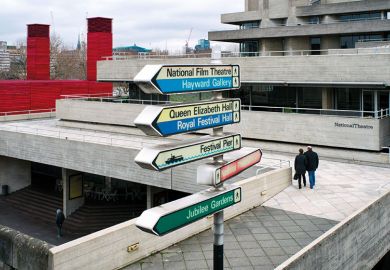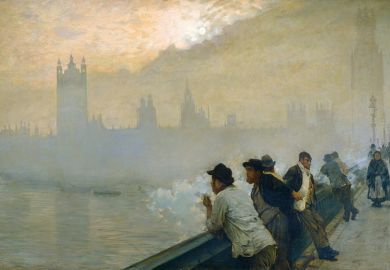This is a wretched period for American cities. More than 250 mass shootings in 2019 re-established the city as a place of threat, and it was hard to think about somewhere such as El Paso (population: 600,000) without thinking of the violence that occurred there in July. More prosaically, many of us will have been dismayed by the quality of US urban infrastructure or the criminally overpriced housing in Seattle, San Francisco or Boston. You can still live magnificently in US cities, but you need magnificent amounts of money to do so.
So it is good to read this defence of the American city. Specifically, it is a defence of utopianism in the American city, and among the many useful things it does is to show just how embedded utopianism is in its morphology. It also shows how interconnected America’s urban utopianism is with its political culture. Thomas Jefferson’s work at Charlottesville is the obvious starting point here, and Alex Krieger presents Jefferson’s Academical Village as an embodiment of an ideal polity far more than of a style. Jefferson appears as an obsessive builder, for whom architecture and politics are the same.
The ensuing chapters work through the planning of the enigmatic and still poorly understood capital city, Washington; anti-urbanism in its various forms; the National Parks movement; Frank Lloyd Wright’s Broadacre City and the ensuing cult of the suburb; and Chicago’s 1910 Great Exhibition and its legacy in the City Beautiful movement. It’s very well done – a great sweep of material, grand ideas, full of complexity and nuance.
Although largely a history of urban victors, the book gives about enough space to the vanquished. Jefferson’s Virginian idyll depends on slave labour. Chicago’s wealth derives from an epic slaughterhouse complex in which perhaps billions of animals met their deaths. The gracious form of central New Orleans was built on racial exclusion, all too apparent after the catastrophe of the 2005 hurricane.
Krieger is less happy in modern America. There’s rightly extensive coverage of Disney’s new town, Celebration, but on stratospherically growing Las Vegas there is not much sense of the city beyond a cartoon-cutout stage for capital investment (with its attendant critics, such as Michael Sorkin). There is more to it than that, as the architects Robert Venturi and Denise Scott-Brown showed in the early 1970s. Their openness to the city and its capacity for change would have helped – it’s odd that they get only a footnote.
Similarly with “autopia”– the neologism describing the car-centred metropolis. Krieger does not have much of a feel for it, but plenty did, and it needs some more convincing explanation of its appeal. One of the pleasures of reading the critic Reyner Banham is his understanding of the texturedness of autopia, the potential richness of its experience as well as its horrors. These parts somehow lack the empathy of the Jefferson and Washington chapters.
Krieger does not provide many surprises: this is a history of the US city that will largely reinforce what its readers think already. It is a great achievement, nonetheless, in its range and depth, as well as being extremely fluent. I read its 356 pages in one very enjoyable sitting.
Richard J. Williams is professor of contemporary visual cultures at the University of Edinburgh. His most recent book is Why Cities Look the Way They Do (2019).
City on a Hill: Urban Idealism in America from the Puritans to the Present
By Alex Krieger
Harvard University Press, 440pp, £28.95
ISBN 9780674987999
Published 25 October 2019
Register to continue
Why register?
- Registration is free and only takes a moment
- Once registered, you can read 3 articles a month
- Sign up for our newsletter
Subscribe
Or subscribe for unlimited access to:
- Unlimited access to news, views, insights & reviews
- Digital editions
- Digital access to THE’s university and college rankings analysis
Already registered or a current subscriber?








